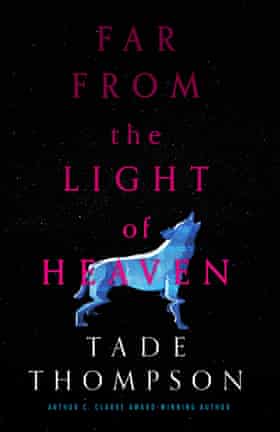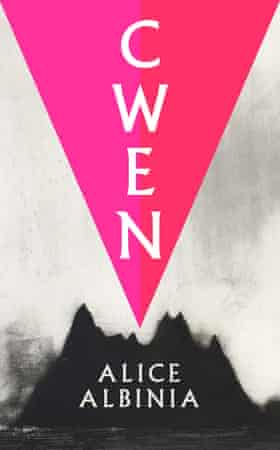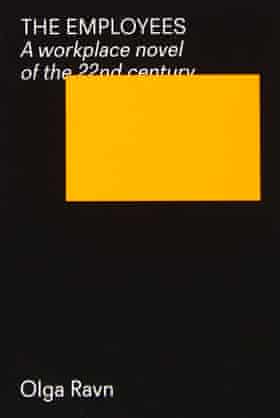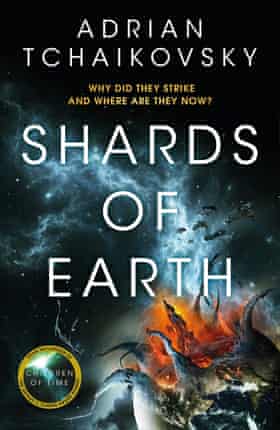 |
| The best science fiction and fantasy of 2021. Illustration: Maïté Franchi |
Five of the best science fiction and fantasy books of 2021
A locked-room mystery, interstellar office politics, a masterful space opera and more
Friday 3 December 2021

Far from the Light of Heaven
by Tade Thompson (Orbit)
Space is vast but spaceships are by nature claustrophobic: Thompson plays cannily on that contrast. Passengers aboard the starship Ragtime are in suspended animation on their way to the distant planet Bloodroot, but 30 people have been murdered in their sleep. Thompson’s tale is cleverly plotted and tensely told as the investigating captain must work against her own crew, bio-contagion, violent robots and a demonic AI to uncover the murderer’s identity. The book does more than the description “locked-room mystery in space” suggests: not only wrong-footing the reader as its mystery unfolds, but creating a series of believable, compelling worlds with some genuinely alien aliens.
The Actual Star
by Monica Byrne (Voyager)
This ambitious, inviting novel ranges from the declining Mayan civilisation in the year 1012, via a storyline set in 2012 in Belize, to the year 3012, when humanity lives in “a global system of nomadic, anarchist self-organisation”. By “inviting” I mean that it offers itself to readers as a way of thinking how to move beyond what the novel calls the “four great evils: capitalism, whiteness, patriarchy, nationalism”. Whether or not you agree that those are the four great evils, you will be swept into Byrne’s meticulously worked world-building by her compelling storytelling and rich prose. This is a book about the profound interrelations of past and present – the Mayan sections are marvels of vividly rendered research – and the hi-tech, mystical, sex-positive, post-climate-collapse diversitopia of its imagined future is simply extraordinary.

Cwen
by Alice Albinia (Serpent’s Tail)
Although in the last few decades there has been an almost pathological obsession with dystopia, utopian writing is a much older mode. Not that there’s any wishful thinking about Alice Albinia’s feminist community, set on an archipelago “somewhere off the east coast of England”. When the de facto leader leaves for the uninhabited island of Cwen, named for its presiding goddess, what she has achieved on the archipelago is picked apart. Albinia engages throughout with the difficulties of trying to work for something better than what we have: the inertias and frictions of our world, its resistance to emancipation. She combines this with a wonderful vision of Britain’s deep history of myth and matriarchy.

The Employees
by Olga Ravn, translated by Martin Aitken (Lolli Editions)
The Six-Thousand interstellar spaceship is a workspace; this short novel’s characters are workers. “You’d probably say it was a small world,” one of the characters says, “but not if you have to clean it.” The arrival on board of a number of strange alien objects galvanises a jumble of mundane and transcendent memories and provocations: intensities of taste and touch, of smell and consciousness. The book owes something to the Strugatsky brothers’ Roadside Picnic (or to the film Andrei Tarkovsky made of it, Stalker), though its alien artefacts are more compelling, and the ship more recognisably a place of office politics and corporate-speak. Coolly but artfully written, The Employees is a remarkable piece of work.

Shards of Earth
by Adrian Tchaikovsky (Tor)
Since 2015’s breakthrough Children of Time, in which humans encounter a species of sympathetically rendered, sentient spider, Tchaikovsky has consolidated his position as the finest purveyor of high-quality space opera around. His new series, The Final Architecture, kicks off with this masterly example: space battles, cosmic mystery, alien superstructures, a ragtag crew of humans and aliens piloting a battered but trusty ship. Earth has been transformed into a vast “flower” and destroyed in the process: the war with the mysterious Architects is not as over as people think. The story treads some familiar ground, but does so with an expert touch, and the whole is deft and clever, expansive and readable, all informed by Tchaikovsky’s superbly baroque imaginative fecundity.


No comments:
Post a Comment